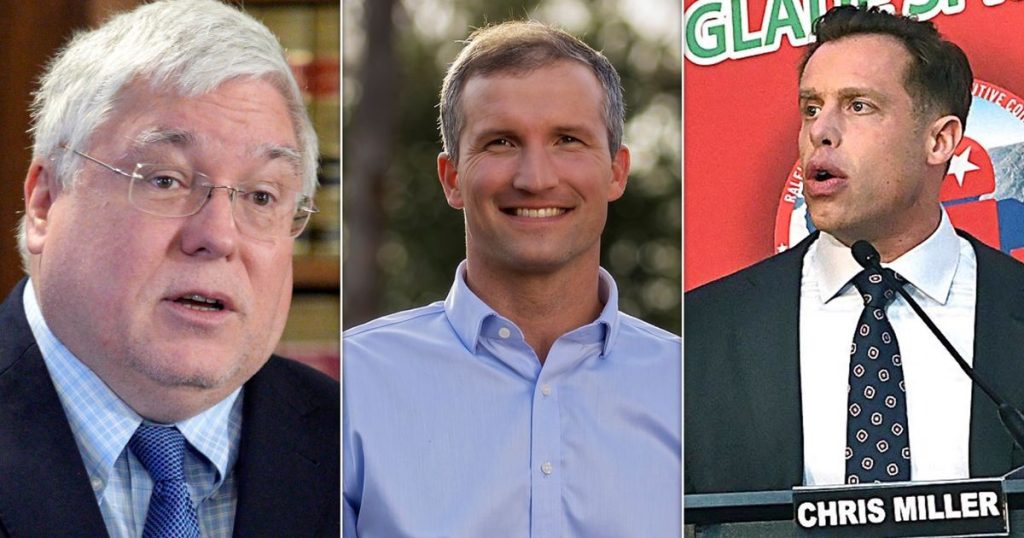In the Republican race for governor in West Virginia, candidates Patrick Morrisey, Moore Capito, and Chris Miller are competing to take a strong stance against LGBTQ+ rights, specifically targeting transgender individuals. Morrisey, leading in the polls at 28% support, has vowed to keep transgender student athletes out of girls’ and women’s sports and restrict access to gender-affirming care for minors. Capito, at 25% support, has adopted anti-trans rhetoric despite previously supporting LGBTQ+ rights. The focus on attacking the transgender community has been a central theme in the GOP race for governor, even though LGBTQ+ people make up only about 4% of the state’s population.
Morrisey’s campaign website highlights his opposition to biological males playing in women’s sports and his efforts to challenge a court decision allowing a transgender student to compete. Capito, while initially supporting LGBTQ+ rights, has shifted to anti-trans messaging, sponsoring a bill banning puberty blockers for children and supporting a ban on gender-affirming care for minors. The candidates have engaged in attack ads against each other, with Morrisey’s supporters criticizing Miller for his past involvement with LGBTQ-friendly events, and Miller’s campaign highlighting Morrisey’s ties to pharmaceutical companies and his lack of strong leadership.
The focus on anti-trans rhetoric has been criticized by some in West Virginia, with a local newspaper questioning the candidates’ priorities on issues such as healthcare and infrastructure, which impact residents’ daily lives. The increase in anti-LGBTQ bills nationwide has seen West Virginia pass laws restricting gender-affirming care and transgender participation in school sports. However, recent legislative setbacks for anti-LGBTQ bills in the state suggest a potential shift in public opinion on LGBTQ+ rights.
The outcome of the gubernatorial race will shape the future of LGBTQ+ rights in West Virginia and reflect the state’s evolving political landscape. Once a stronghold for Democrats, the state has shifted towards the right in recent years, aligning more closely with Republican ideals. Economic concerns, particularly related to the decline of the coal industry, have played a role in this political realignment. Despite the anti-trans rhetoric in the state, transgender individuals like Rosemary Ketchum have successfully campaigned for local office, demonstrating that anti-LGBTQ sentiments may not resonate with all voters.
Overall, the Republican race for governor in West Virginia has been marked by strong anti-trans rhetoric from candidates seeking to appeal to conservative voters. The outcome of the election will impact the future of LGBTQ+ rights in the state and provide insight into the changing political landscape in West Virginia. Despite the focus on attacking the transgender community, transgender individuals in the state have made strides in reshaping policies at the local level, showing that anti-LGBTQ sentiments may not be as prevalent as some candidates suggest. The state’s economic concerns and political history will also play a role in shaping the future of West Virginia’s political landscape.







